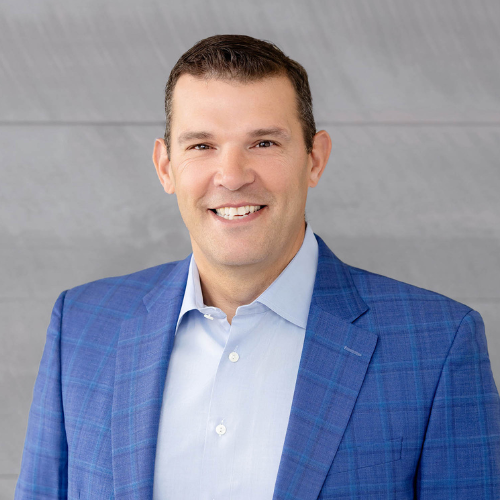People often ask me what makes for a great financial advisor. Honestly, this question doesn’t even excite me because so much has already been said on the topic. “Google it!” I say, and discover for yourself the many, many answers to this question.
At Beck Bode, our stance is that great financial advisors come in many different forms, but that the one thing they have in common is a desire to do good and to do the right thing. Beyond their ethics, we also believe that an advisor who is “worth their salt” is able to ask the three fundamental questions that define our investment Strategy.
I’d much rather take some time here to talk about what makes for the worst financial advisor. This hits close to home for me. I can speak to it from a place of personal experience because my family was seriously impacted by a less-than-reputable advisor years ago.
1. You’re Invested in Mutual Funds
I can't stand it when people are misled. I hate to see people lied to or led down a bad path. I especially can’t stand it when people are sold a bill of goods on an investment or investment process. People are routinely led to believe that they are getting customized recommendations when in fact they are put into some cookie-cutter program
In our practice, Ben and I and our team of advisors run into this every day. I can't tell you how many times people come to us with their portfolios and ask, “What should we be doing differently?” Or “What do you think about my portfolio?” And our answer to them is” You’re doing the exact same thing that everyone is doing: you’re putting your money into a portfolio (often consisting of mutual funds), that your advisor is then handing over to someone else to manage (someone whom he or she often doesn’t even know), and you’re checking on it once or twice a year.” Wait, there’s more… “Oh, and you’re paying them a fee to do this.” If this isn’t the old school, George Foreman grill “set it and forget it” approach to investing, then I don’t know what is.
If you’ll allow me to rant for a moment. The trouble is that investing has become generic. Real investing is something of a lost art. You don’t even have to be qualified to invest anymore. Just about anyone can claim to be an investor, without training, rhyme, or reason. You could just open your own account and pick a couple of investments. You’ll be on your way. What your outcome will be, I don’t know, but then again, we don’t speculate on outcomes one way or another.
2. Your Advisor Can’t Explain Their Process For Making Investment Recommendations
A hands-on investment advisor who has a process and a strategy is hard to come by these days. What I call a ‘real’ investment advisor can make a significant difference in your financial life if they’re educated, follow a valid process, and are committed to making sound investment recommendations on your behalf. Let’s contrast that with mutual fund investing, what we consider ‘generic’ investing. A mutual fund is designed to be suitable for the masses. If your financial picture is just like anybody else’s, and you’re OK with having something that everyone else has, then a portfolio of mutual funds and ETFs is going to work just fine for you.
But if you want to do something different, if you're searching for something that could be a little bit more personalized, there are other ways you can be investing. There are investment strategies out there that take a truly personalized approach to what a client needs to do to have a successful retirement. Seriously, why would you want what your neighbor is doing who's in a different financial situation, or what your brother and sister are doing? It drives me crazy when I meet with a prospective client and find that they trust their brother-in-law, their boss, or some guy on TV for financial advice.
I don’t mind that they are skeptical. No, the part that drives me crazy is that someone told them something that they cannot validate, and they are willing to take it for truth. That’s the part that doesn’t sit well with me. Sure enough, this person then hands me their statements, and I investigate their holdings. You can bet that what I discover almost every single time is a portfolio of mutual funds and ETFs. Their allocations may be slightly different from another person’s but the reason they hold that security is the same as everybody else’s, because they are so easily swayed by what they hear or read in the media, or what their family members or colleagues claim they should do.
3. You’re Being Advised To Follow A 60/40 Strategy
This brings to mind the topic of 401(k)s and how people make terrible investment decisions inside those vehicles. We see this all the time when new clients come to us and show us their 401(k) statements. You have a pre-retiree who’s about to retire in five years and has selected the same investment options as that brand-new college grad. They may have different amounts in the different investments, but they're choosing from the same 20 investment options. It makes no sense.
The reality is if your financial advisor is not purchasing individual securities for you, then how can they claim that the portfolio was customized for you? If you know even a little bit about how mutual funds work, you’ll know that inside a mutual fund, there is indeed somebody putting together a portfolio of stocks. But it’s not your investment advisor. This means that there is a serious disconnect between who is making the investment decisions (the fund manager) and who is going out there and hiring somebody else to manage your portfolio (your so-called investment advisor).
People are led to believe that a mutual fund that says it holds “60% of their account in growth style companies” is a customized investment. I consider that a pretty broad definition, and far from “customized.” Mutual fund managers are hired to build portfolios for the masses. They aren’t hired to build a portfolio for you. Knowing that a mutual fund is 60% allocated in growth-style companies doesn’t help me figure out why and how it’s suitable for any specific client.
4. You’re Being Told That ‘Separately Managed Accounts’ Are Highly Customized For You
One more thing. Clients with higher net worth and investable assets often end up being placed in investment vehicles called ‘separately managed accounts.’ From a pricing standpoint this is more advantageous to the investor, but don’t be fooled – structurally it’s pretty much the same as a mutual fund. At the end of the day, your investment advisor is farming out the work to some other person who is doing the actual investing for a whole bunch of people who are invested alongside you. If you think you’re being treated to ‘better investment choices’ because you have more money, you’re most likely not. And that investment advisor who is working hard on building a relationship with you…they're making recommendations on a strategy and on allocations, that’s all. They're not making recommendations on the individual holdings and why they fit into your portfolio or whether they are suitable for your financial future.
Sometimes when we tell clients how we work, they get wide-eyed. “You mean to tell me you’re actually deciding what gets bought and sold, and you guys are doing the buys and sells here, right here in your office?” they ask. The answer is, “Yes, we are!” One hundred percent of the time. We are making those decisions and answering to people when we get it right and when we get it wrong. We are one hundred percent transparent about our process. We believe in leading people down a path they understand, one they can see, and make sense of.
The Value of A Transparent Financial Advisor
To us, there’s nothing worse than financial advice that comes with smoke and mirrors and some secret sauce. If your investment advisor can’t tell you why they are buying a specific security, when they are going to sell it, and how they will reinvest the proceeds, you need to consider whether they are qualified to be managing your money in the first place. Taking up this topic with your financial advisor may feel too involved, or beyond your comfort level. That’s fine. If taking an ‘average’ path gives you a sense of safety, then by all means, mutual funds and ETFs may be right for you.
Learn more about Beck Bode's investment strategy
James Bode is Managing Partner at Beck Bode, a deliberately different wealth management firm with a unique view on investing, business and life.

 James Bode
James Bode